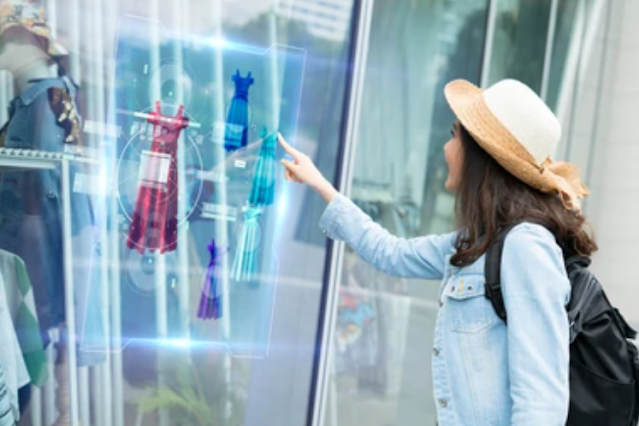AI in Retail: Enhancing Customer Experience and Personalization
AI (Artificial Intelligence) is revolutionizing the retail industry by enhancing the customer experience and personalization. With the advent of advanced technologies and data-driven insights, AI is transforming the way retailers understand and engage with their customers. Here is a detailed exploration of how AI is reshaping the retail industry.
Customer Service and Support:
AI-powered chatbots and virtual assistants are being used in retail to provide personalized and efficient customer service. These intelligent systems can understand natural language queries, assist customers with product information, recommend products based on preferences and purchase history, and handle common inquiries. AI-powered customer service improves response times, reduces customer wait times, and enhances overall customer satisfaction.
Personalized Product Recommendations:
AI algorithms analyze customer data, such as purchase history, browsing behavior, and demographic information, to provide personalized product recommendations. Machine learning models can identify patterns and preferences to suggest products that match individual customer tastes and needs. This level of personalization enhances the customer shopping experience, increases conversion rates, and drives customer loyalty.
Demand Forecasting and Inventory Management:
AI enables retailers to optimize inventory management and forecasting by analyzing historical sales data, market trends, and other relevant factors. Machine learning algorithms can predict demand patterns, identify seasonal fluctuations, and optimize inventory levels. This helps retailers ensure product availability, minimize stockouts, and reduce excess inventory, leading to improved operational efficiency and cost savings.
Visual Search and Image Recognition:
AI-powered visual search and image recognition technologies allow customers to search for products using images instead of text. Visual search algorithms analyze product images and find similar items, allowing customers to discover products based on visual preferences. This technology simplifies the search process, improves product discovery, and enhances the overall shopping experience.
Pricing and Dynamic Pricing:
AI algorithms can analyze market data, competitor pricing, and customer behavior to optimize pricing strategies. Machine learning models can set dynamic prices based on factors such as demand, seasonality, and competitor pricing. AI-powered dynamic pricing enables retailers to adjust prices in real-time, maximize revenue, and remain competitive in the market.
Supply Chain Optimization:
AI improves supply chain management by optimizing logistics, inventory management, and forecasting. Machine learning algorithms analyze data from multiple sources, such as transportation data, weather conditions, and customer demand, to optimize routing, improve delivery times, and reduce costs. AI-powered supply chain optimization enhances operational efficiency, minimizes delays, and improves overall customer satisfaction.
Fraud Detection and Loss Prevention:
AI algorithms can detect fraudulent activities and prevent losses in retail operations. Machine learning models analyze transaction data, customer behavior patterns, and historical fraud cases to identify potential fraudulent transactions in real-time. AI-powered fraud detection systems help retailers minimize losses due to fraudulent activities, protect customer data, and maintain trust.
Augmented Reality (AR) and Virtual Reality (VR):
AI-driven AR and VR technologies are transforming the way customers experience products. Virtual try-on and fitting room experiences allow customers to visualize products, such as clothing or furniture, in a virtual environment. AI-powered algorithms analyze body measurements or room dimensions to provide accurate recommendations and enhance the decision-making process. AR and VR technologies improve customer engagement, reduce product returns, and increase customer satisfaction.
The implementation of AI in retail brings numerous benefits, including enhanced customer experience, increased personalization, improved operational efficiency, and better decision-making. However, it is crucial to address privacy concerns, ensure data security, and maintain transparency in AI algorithms to build trust with customers.
In conclusion, AI is reshaping the retail industry by enhancing customer experience, enabling personalization, optimizing operations, and improving decision-making processes. As AI continues to advance, retailers have the opportunity to leverage its power to create more engaging, personalized, and seamless shopping experiences for their customers.











